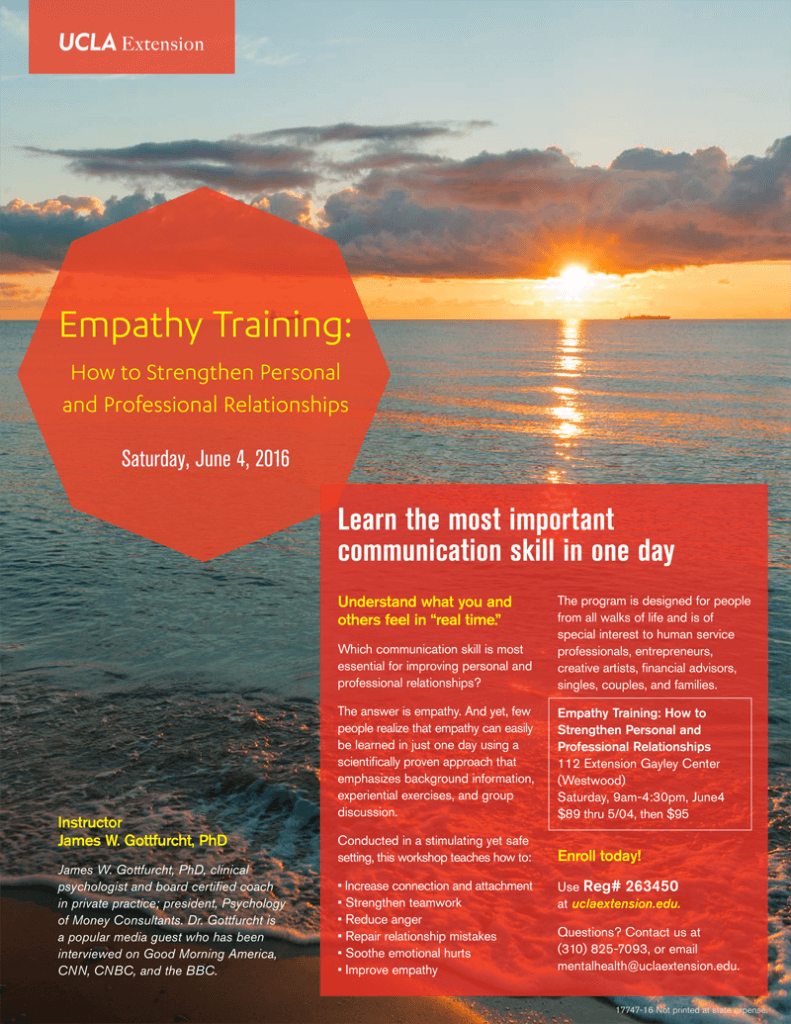



This is a continuation of our prior Newsletter and series on empathy. Let’s explore the differences between Over-identification and Projection and then summarize the advantages of giving Full Empathy over Partial Empathy. We will use the same brief vignette between you and a friend that we used before to illustrate the differences. Assume your friend comes to you and says:
Friend: “I’ve really been feeling stressed lately… It was hard to get through the holidays after losing my mom. And now, I realize I’ve fallen so far behind with my business. I’m not sure how I’ll manage.”
You: “It sounds like you’ve felt stressed out with experiencing the holidays without your mom. Now that you’ve dealt with that, you sound concerned about your business and how you’ll catch up.”
Let’s see if you can tell the difference between this Full Empathy response and Over-identification and Projection. Over-identification is "when someone else's feelings resonate so deeply within us that we exaggerate the similarities and minimize the differences between that person and ourselves." We lose ourselves in another person's world and confuse his or her experience with our own. When we communicate by over-identifying, we distort our understanding of that person. Instead of the person feeling understood, he or she could feel confused or misunderstood. In an exaggerated way, the image below depicts how a pregnant wife might view her husband if she perceived him to be Over-identifying and trying too hard to offer Full Empathy toward the difficulties of her pregnancy.

In our original scenario about your friend going through the holidays without her mother while she fell behind in her business, an Over-identification response might sound like: "I'm sorry to hear what you're going through. Going through my first holiday season without my parents was so depressing and lonely. And I know how you feel with work, because I had so much trouble keeping up at my job too."
Projection is "when we are unaware or unconscious of our own uncomfortable experience and transfer it onto another person." Over-identification can actually be one type of Projection, but Projection can be caused by many other reasons. For example, we can project due to feeling anxious, angry, jealous, threatened or afraid about what the other person is saying. When we project, it can easily confuse or upset the other person.
A Projection response might be like: "After having difficult holidays without your mom, it seems like you're having a more difficult time with your business than you originally thought. You seem scared you could lose it." This last sentence seems like projection because your friend did not express fear about losing his or her business.
As you can see from the past two Newsletters, it is highly important to be aware of when you are offering someone Full Empathy or Partial Empathy. The latter consists of Sympathy, Mechanical Mirroring, Over-identification or Projection. It is also important to be aware of when you want someone to listen to you and to feel understood. When this is what you want, it can make a huge difference if the other person offers you Full Empathy rather than Partial Empathy. Full Empathy encourages you to feel safe, trust, open up and engage in self-exploration and self-discovery. It empowers you, creates emotional closeness and strengthens relationships. Partial Empathy does not promote these favorable outcomes and sometimes causes the speaker to shut down and emotionally distance.
In closing, we want you to realize how important empathy is for building financial success. Whether you are an entrepreneur, employee or a professional, which type of empathy do you believe will increase your clients’ or customers’ satisfaction?... Retention?... Referrals?… Which type can hurt your client and customer relationships? If you want to increase your Full Empathy significantly,
I am conducting an Empathy Training workshop at UCLA Extension on Feb. 8 for only $95. With experiential practice and real-time feedback, I will teach you how to consistently offer Full Empathy rather than Partial Empathy.
I want to invite you to attend this workshop which is entitled Empathy Training: How to Master Personal, Professional, and Financial Relationships.
When: Sat, Feb 8, 9am-4:30pm
Where: Westwood: 202 Extension Lindbrook Center
Fee: $95
Do you know what the most vital skill is for developing fulfilling and successful relationships? Empathy. Did you know that you can learn empathy skills in 1 day?
Using a scientifically proven approach emphasizing experiential exercises, didactic information and group discussion, this workshop teaches you how to:
This workshop is of special interest to: human services professionals (doctors, nurses, therapists, coaches, teachers), financial professionals (planners, advisors, wealth managers, attorneys), entrepreneurs, managers, singles, couples, parents and families.
Hope to see you there!

James W. Gottfurcht, PhD
If you have any comments, stories or opinions, we would love to hear them - please email us at psychmoney@aol.com.
Upcoming Newsletters will address psychology of money topics such as:
UCLA Extension Workshop on February 8, 2014
Since the 1970s, Psychology of Money has been a leader in helping men, women and families to improve their empathy, emotional intimacy and communication along with their mindset toward money, financial success and family legacy.
Quick Links

James W. Gottfurcht, Ph.D.
President, Psychology of Money Consultants; Clinical Psychologist; Board Certified Money, Career and Life Coach; Keynote Speaker

Zoreh Gottfurcht
Certified Money, Business and Life Coach; Associate Director, Psychology of Money Consultants
Search for

Recent Posts